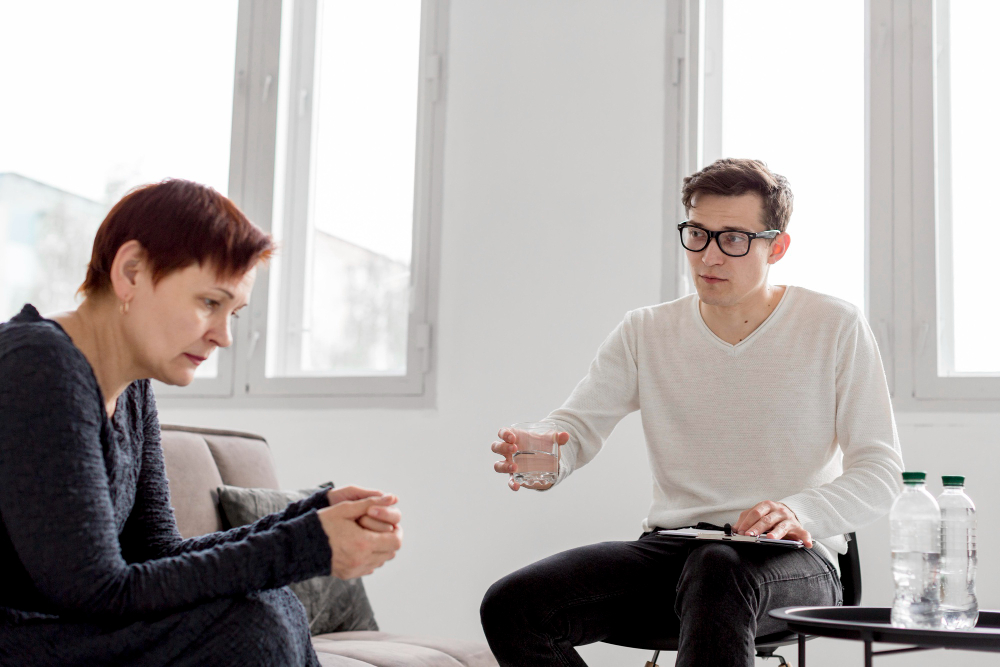Dealing with Dependence
Intensive Outpatient Treatment
For Habits & Dependency
By doing intensive outpatient Dependence treatment, Dr. Marty’s goal is to prevent hospitalization, divorce, or severe financial problems – and any of the serious consequences that will happen if there isn’t intensive focused treatment for the fixation.
Treatment for Gambling Addiction | Sexual & Pornography Addiction
Is your relationship on the brink of divorce, because of habitual behavior? Over the years, I have helped people who are suffering from sexual and pornography dependency, and fixations with the internet, shopping, and gambling.
With intensive outpatient treatment, you will have all the privacy and anonymity of visiting a therapist’s office, while continuing to work and living your life.

Habit Outpatient Rehab
With strong motivation and a good support system, outpatient treatment and therapy for bad habits can be successful. Counseling is an essential component of the rehab and recovery process. Dr. Marty has 35 years of experience providing personalized treatment for dependence, and can help you understand the deeper issues that need to be addressed, and healed, during the recovery process.
Staying clean takes effort day to day. Dr. Marty knows the many pitfalls, and will be able to provide helpful guidance every step of the way.
Pornography Fixation
Therapy


Sexual Dependence
Therapy
Treatment For
Gambling
Treatment for gambling fixation, or compulsive gambling, will also look for other, frequently related issues, such as depression, anxiety, or other obsessive compulsive disorders. Dr. Marty will work with you, your spouse, and your family, to help you understand and address the underlying causes of your gambling habits as well as establish new behaviors and healthy routines. Together, we will develop a treatment plan, and we will find ways to help prevent a relapse into compulsive gambling.

Three Steps to Dealing With Dependence
Biofeedback Therapy (BT)
BT uses a computer program that teaches you how to self regulate your feelings and your behavior. To learn more read the material below.
Strategy for Successful Treatment
The first thing to be aware of when treating dependence is a person engages in addictive behavior to avoid intense feelings of stress, anxiety, anger, depression, or irritability.
BT helps with self regulation and reduction of intense negative feelings. By giving real time feedback, BT helps you become aware of your breathing pattern, and as a result you learn how to make changes which powerfully affect you, physiologically and psychologically.
Here’s how BT works
The way you use the computer program is that there is an ear clip that is connected to a cable, that is connected to the computer. The program gives real time feedback as to the degree your heart rhythm and respiration are in sync, so you can learn when and how to breathe correctly.
We breathe differently when we are relaxed, angry, or depressed. When you your body slows down, you are calmer and feel more centered. Also, as you get more oxygen to your brain you think more clearly.
Please note that BT is one tool which enables a more effective use of of other strategies such as:
Understanding addictive triggers
Increased self awareness
Improved communication skills
Anger reduction
Reconnection with meaningful others
Understanding impact of your past
Improved self concept
You can practice these exercises on your own at home. There are also devices you can use to help you to master the skills involved.
BT is based on biofeedback technology developed by HeartMath which is used by NASA, Kaiser Permanente, Standford School of Medicine, Cedars-Sinai, and over 25,000 Health Professionals worldwide.
We will do our counseling either individually, as a couple, or a combination of both approaches. Together we will determine which will be the most effective in your particular situation
If you would like more information give me a call at 888-281-5850. Phone coaching is also available to folks unable to see me at my office.
To The Partner of the Addicted Person: Are you Codependent?
Regardless of whether or not it is alcohol, drugs, sex, gambling or the internet, it is hard to have a partner that is an addict. Addiction affects personal relationships, communication, parenting, finances and work life.
Oftentimes, a non-addict believes that this problem is best resolved by getting his/her partner to admit and deal with the addiction, and participate in therapy (Information on non-traditional treatment for addictions is available at DrMartyTashman.com). A bigger challenge however, is for the non-addict to think about their own needs and behavior. It is important that the non-addicted partner consider these questions:
What do you want and need from this relationship?
How do you want to be treated?
Am I being a good partner by being supportive (but not enabling) and understanding (but not rationalizing)?
What am I going to do that is not dependent on my partner’s behavior?
Codependency – A Challenge for the Partners of Addicts
Melodie Beattie, a prominent expert in the field who has popularized the term “codependent,” defines the term as a non-addicted partner who is waiting for a significant other to change. Codependency occurs when an individual allows him/herself to be controlled by someone else’s behavior. For example, the codependent person often thinks:
“What can I do? Joe is a gambler and I can’t get my life straight until he does something about his gambling” or
“Mary is an alcoholic and she has to get treatment because she is ruining our family.”
The first step therefore, is for the non-addicted partner to assess whether or not codependency is an issue. Below are 26 symptoms of codependency.
Symptoms of Codependency
- Inability to identify what is “normal” in a relationship.
- Difficulty in following through on a project.
- Difficulty having fun.
- Judging self and others without mercy.
- Projecting low self-esteem onto others. (e.g., why don’t they get their act together?)
- Difficulty in developing or sustaining meaningful relationships.
- Overreacting to change (intense fear of, or inability to deal with, change).
- Inability to see alternatives to situations and therefore responding very impulsively.
- Constantly seeking approval and affirmation, yet having to compromise one’s sense of self.
- Experiencing feelings of being different.
- Experiencing confusion and a sense of inadequacy.
- Being either ultra responsible or ultra irresponsible (or alternating between these).
- Lacking in self confidence when making decisions and having no sense of power in making choices.
- Denying a feeling of fear, insecurity, inadequacy, guilt, hurt, or shame.
- Isolating oneself and fearing and/or resenting authority figures.
- Fearing anger or bottling it up until it explodes.
- Being hypersensitive to criticism.
- Being addicted to excitement or drama and creating chaos.
- Being dependent on others and fearing abandonment.
- Avoiding relationships in order to guard against fears of abandonment.
- Lacking the ability to differentiate between love and pity.
- Having a tendency to look for “victims” to help.
- Being rigid and needing to control.
- Lying when it would be just as easy to tell the truth.
- Believing that others cause or are responsible for one’s emotions.
- Having rescue fantasies.
Conclusion – What to do next
Anyone in a relationship with a partner who is suffering from an addiction must be sure to take care of oneself and in particular, protect the children involved. Listed below are a number of suggestions and resources that can provide information and support to anyone experiencing the difficulties of dealing with an addicted partner.
- Review the website MarriagePartner.com which offers a message board where people talk about the issues they face in dealing with a difficult partner.
- Locate a self-help group at SelfHelpGroups.org, a self-help clearing house for groups across the country. One self-help group that deals with the issue of codependency is Codependents Anonymous, or CoDA.
- Seek professional counseling. Marriage and family therapists with background and training in dealing with substance abuse and other addictions oftentimes can be a good choice. They not only understand addictions, but also the dynamics of relationships and family interactions.
Waiting for an addicted partner to change is an invitation for disaster, and the longer one waits, the worse things will get and the harder it will be to deal with all of the issues. Instead, the non-addicted partner should take the first step and not wait for the addict to take care of him/herself.